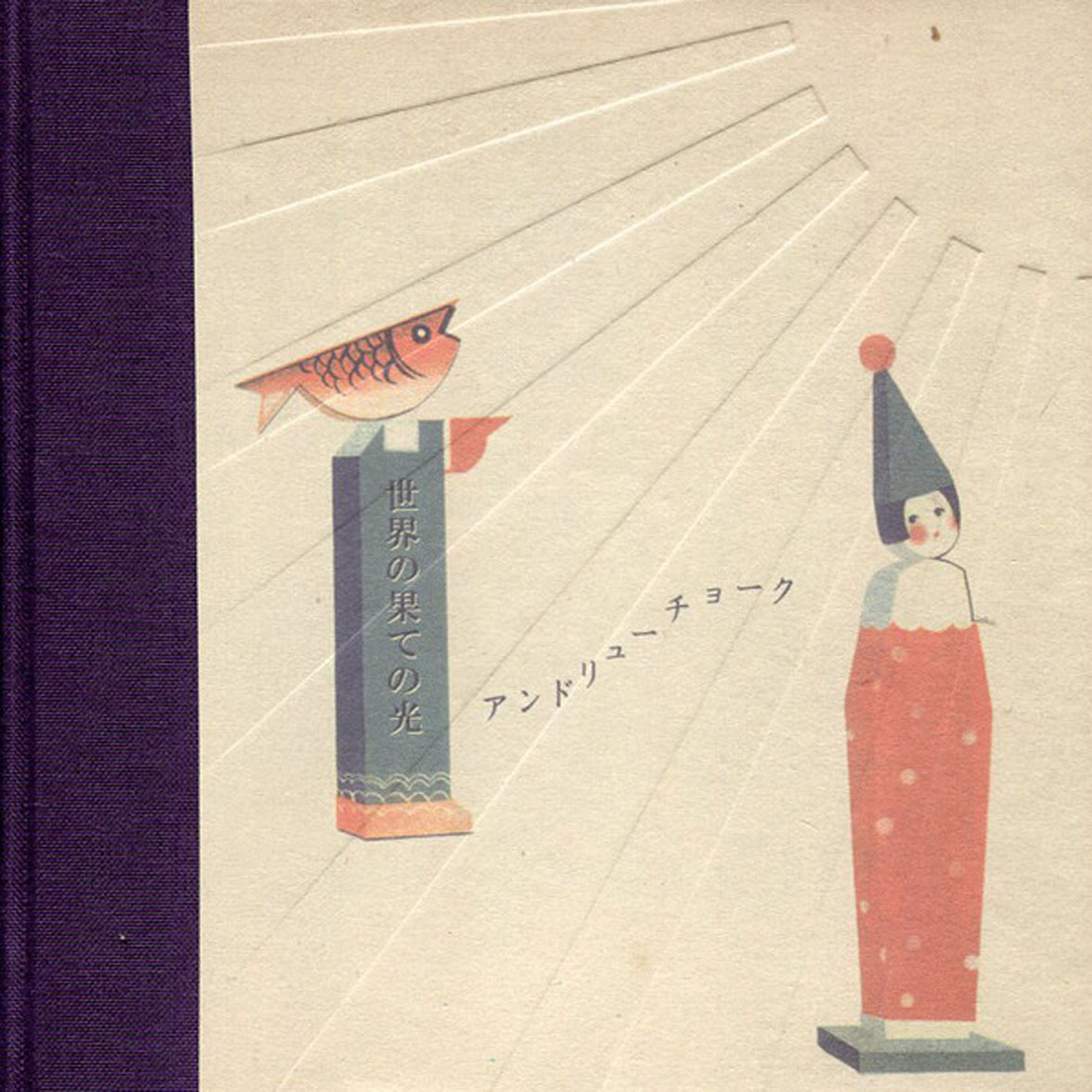 I was initially planning to write something like "somehow this wonderfully sublime 2015 release managed to slip by me completely unnoticed," but immediately realized that there was no mystery at all: the only effective way to keep abreast of Andrew Chalk's quietly expanding oeuvre is to actively keep an eye on the Faraway Press website and hope that anything I gamble on is up to Chalk's usual high standards.  While a few of his recent releases have admittedly been a bit too pastoral to fully connect with me, the glistening and gently hallucinatory reverie of this single extended piece for electric piano completely hits the mark.  In some ways it reminds me of William Basinski's eroding tape loops or Steve Roach's classic Structures From Silence album, but not in any sort of direct way.  Rather, A Light At The End of The World just feels like a mesmerizing soundscape of almost liquid textures that I could happily listen to an infinite loop for hours.
I was initially planning to write something like "somehow this wonderfully sublime 2015 release managed to slip by me completely unnoticed," but immediately realized that there was no mystery at all: the only effective way to keep abreast of Andrew Chalk's quietly expanding oeuvre is to actively keep an eye on the Faraway Press website and hope that anything I gamble on is up to Chalk's usual high standards.  While a few of his recent releases have admittedly been a bit too pastoral to fully connect with me, the glistening and gently hallucinatory reverie of this single extended piece for electric piano completely hits the mark.  In some ways it reminds me of William Basinski's eroding tape loops or Steve Roach's classic Structures From Silence album, but not in any sort of direct way.  Rather, A Light At The End of The World just feels like a mesmerizing soundscape of almost liquid textures that I could happily listen to an infinite loop for hours.
At its surface, this album is essentially a single very simple and meditative motif extended for album-length duration.  There is no clear beginning or clear end, as "A Light at the Edge of the World" essentially just begins happening and then eventually stops happening with no overtly significant evolution in-between.  Rather, Chalk is content to just quietly, tenderly, and languorously improvise around a few arpeggios.  The magic, of course, lies in the details, as Chalk has made his career as a master of nuance and understatement and this album perversely takes those (non-extreme) tendencies to their hypnotically beautiful extreme.  The single most striking aspect here is the glistening tone that Chalk conjures from his piano, as each individual note seems like a sun-dappled droplet of water slowly rolling down a windowpane.  That curiously radiant, fluid, and organic texture, coupled with the flowing, arrhythmic pace of the notes combines to evoke a slow-motion cascade of shimmering globes leaving a blearily spectral and hallucinatory after-image in their wake.  Chalk truly weaves a near-perfect illusion here, masterfully erasing himself from the picture to leave just a lazily undulating mist of warm and elegantly blurred heaven that seems to extend forever.  In short, this album is basically a lysergic summer rain experienced in extreme slow-motion (not a particularly common aesthetic).
Naturally, creating a texturally rich and dreamily shifting soundscape that feels like a living organic entity is considerably more complex than it may seem from the apparent simplicity of the central theme.  While I have admittedly encountered a few loops that were perfect enough to warrant infinite repetition, the idea of an endless loop or floating stasis tends to be a hell of a lot more compelling than the reality.  Consequently, maintaining such an illusion requires a masterful sleight of hand to inconspicuously sneak in some much needed unpredictability and dynamic variability.  Chalk achieves that objective by quietly ensuring that his rippling tumble of individual notes unfolds over a constantly shifting haze of sustained lower tones.  Also, while he is not overt about it, the arpeggios in the foreground lazily follow the drift of the underlying chords rather than lingering around the same small cluster of notes.  Consequently, what feels like a warm, amorphous drift is actually a glacially unfolding flux of constantly evolving new harmonies (and one that is beautifully deepened by the lingering, quavering cloud of overtones to boot).
Less significantly, Chalk peppers the piece with a host of small-scale dynamic touches, such as understated space-y whooshes and washes of hiss.  His greatest small-scale dynamic feats occur with the central arpeggio motif though, as he sensitively varies his attack to give his notes a wonderfully physical and multi-dimensional feel.  It seems as though they are billowing through the mist at varying levels with varying degrees of force: some seem like they barely break the surface, while others feel like a small-scale eruption.  In Chalk's hands, the cumulative effect of all these small acts and behind-the-scenes plate-spinning is quite a wonderfully absorbing spell that feels like a natural event.  I am always in awe of composers who manage to completely dissolve into their work (there are not many around).  Naturally, I feel a bit silly hailing an Andrew Chalk album for all of the same slow-burning, nuanced, and thoughtful virtues that essentially define the bulk of his oft-wonderful oeuvre, but this album definitely feels like one of the more immersive and perfectly executed jewels in his sprawling and under-heard discography.
 
Read More

